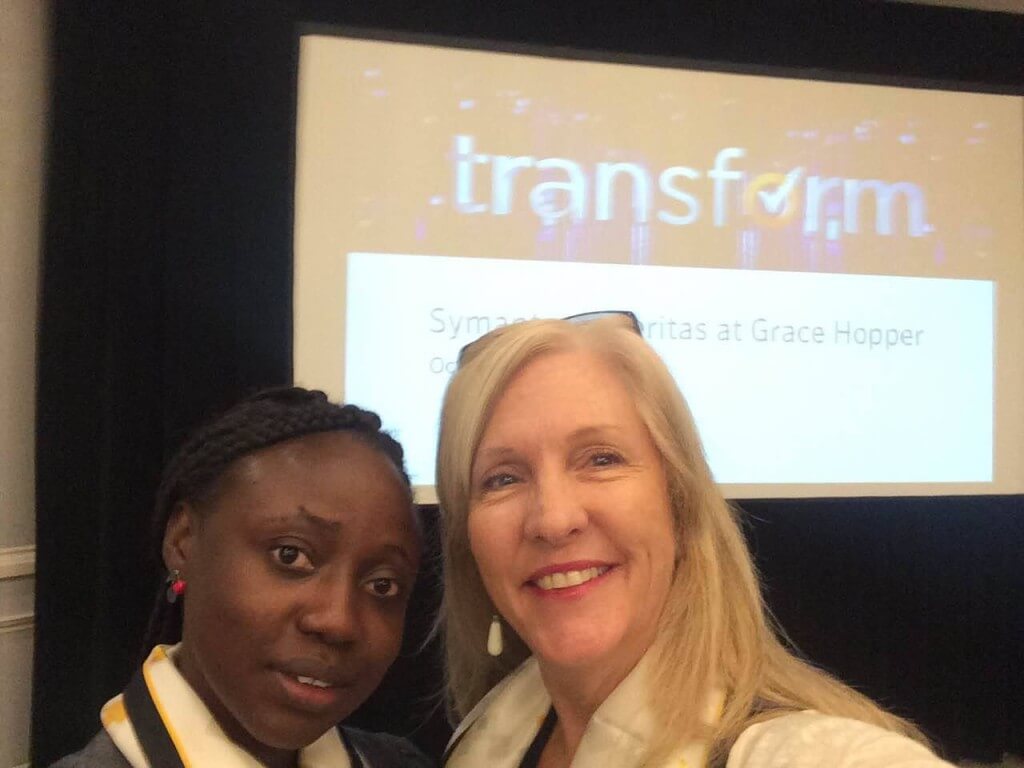Guest post by Abiola Ilupeju, 2015 Emerging Leader from Nigeria
It is no doubt that professional mentorship is an accelerator of career development. Generalizing the TechWomen definition, “a professional mentor is a more experienced professional that helps a mentee grow and thrive in his or her career/profession.”
In my own personal life, mentorship has shaped my career to what it is today; my very first mentorship experience was in my second year at the college. I had always loved the idea of being an IT consultant just like one of my lecturers I so much admired, a Ph.D holder at that time. In one of her classes she shared how challenging working as a consultant on an IT project could be with the programmers, as they always disagreed with her recommendations (not because of incompetence but because they knew that she had never been a programmer). This story captivated me and I decided that regardless of the career I would eventually choose in the IT field, I must have programming knowledge. That has determined the career steps I have taken ever since.

Abiola Ilupeju (2015 EL at Symantec), Eileen Brewer (Director, Security Appliances Team @Symantec, professional mentor)
Another professional mentorship experience was during my participation at the recently concluded 2015 TechWomen programme; I was matched to a professional mentor, Eileen Brewer at Symantec Corporation. The programme gave me access to one of the world’s leading companies in cyber security.
My interest was in Software Quality Assurance (QA) as I had done some work in this field in my place of work and in my home country at large. Working with the QA team of a Silicon Valley company showed me the various possibilities in the field, beyond what I could learn on my own or experience on my job. I received a lot of training and learnt about the new ways of conducting software Quality Assurance and the best practices that yield efficient results.
One of the first workshops we had during the programme included a session on “mentorship” delivered by Katy Dickinson, the founder of Mentoring Standard. She highlighted the following as some of the benefits of mentoring for a mentee:
- A mentor makes introduction – to people, programmes or the larger company:
On many instances, you would hear my mentor introduce me to her colleagues, saying “This is Abiola, a Software Quality Assurance Engineer…” then I would join the conversation with an elevator pitch of the things I do and wish to learn. In these conversation, 90% of the time, the outcome was getting to know someone who has something to teach me in QA. She also introduced me to the Mozilla Corporation where I had the opportunity of meeting with and learning from a Director in QA.
- Mentors give recommendations to best resources:
A professional mentor may not always be a subject expert in your field but he/she has gone ahead of you and has built a larger professional network. For example, my professional mentor used her networks to facilitate all my technical trainings.
- Mentors enhance the professional confidence of the mentee:
It is possible sometimes that we don’t appreciate the entirety of whom we really are. On the other hand, the professional mentor, having understood the mentee, knows his/her ability and what he/she is capable of achieving. The mentor sees the mentee in this light. I can remember vividly one time when my professional mentor was introducing me to some of her colleagues, I had to quietly ask myself “am I still the one she’s talking about?” when I was alone and analysed it, I asked myself “why not me?” This built my professional confidence to no small extent.
- Mentors provide feedback for the mentee to consider:
The importance of the objective and sincere feedback given by the mentors cannot be over-emphasized, if handled well, they will ultimately improve the mentee – on another occasion, I was preparing for a presentation, my professional mentor listened to my presentation over and over again, each time providing her feedback until I had a perfect pitch!
The impact of professional mentorship goes beyond that on an individual, because apart from applying the new skills learnt (just as I am doing), the mentee whose career has been shaped will impact several other people and the world at large. More governments should therefore emulate the US government to join in the efforts of making the world a better place.
 Abiola Ilupeju started her career as a web application developer before she moved to the field of software testing/quality assurance. She is an information system auditor at Upperlink Ltd. Her passion for software quality led her to establish Moat Consulting Ltd., a startup IT company that focuses on quality and security in software development. She has a patented customer management and self-service portal product. Abiola holds a degree in computer science with a focus on economics from Obafemi Awolowo Univerisityin Nigeria. She is a certified ethical hacker and is also certified in IT service management. She believes that the female gender has inherent abilities that make them excellent software developers, and she has set up an initiative called PINK IT, aimed at developing the interest of girls in software development. Abiola maintains a personal blog at www.abiolailupeju.com and is a columnist for DNS Africa Magazine.
Abiola Ilupeju started her career as a web application developer before she moved to the field of software testing/quality assurance. She is an information system auditor at Upperlink Ltd. Her passion for software quality led her to establish Moat Consulting Ltd., a startup IT company that focuses on quality and security in software development. She has a patented customer management and self-service portal product. Abiola holds a degree in computer science with a focus on economics from Obafemi Awolowo Univerisityin Nigeria. She is a certified ethical hacker and is also certified in IT service management. She believes that the female gender has inherent abilities that make them excellent software developers, and she has set up an initiative called PINK IT, aimed at developing the interest of girls in software development. Abiola maintains a personal blog at www.abiolailupeju.com and is a columnist for DNS Africa Magazine.


Speak Your Mind